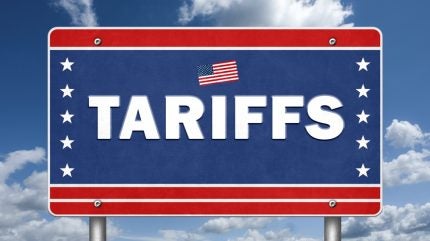
The United States has postponed planned tariffs on imports from Canada and Mexico for one month, allowing time for diplomatic discussions on illegal fentanyl trafficking and border security.
The decision follows negotiations between the three countries, aimed at addressing U.S. concerns while maintaining economic stability.
Retail industry welcomes the move
David French, Executive Vice President of Government Relations at the National Retail Federation (NRF), described the delay as a positive step. He highlighted that the suspension provides an opportunity for diplomatic solutions to be pursued, rather than resorting to trade penalties.
French also stressed the importance of continued cooperation between the U.S., Canada, and Mexico, stating that tariffs should only be considered as a last resort.
He reaffirmed the retail sector’s commitment to working with all stakeholders to ensure economic security and consumer well-being.
Economic risks of the proposed tariffs
The tariffs, announced by President Donald Trump on February 1, 2025, would include a 25% levy on all imports from Canada and Mexico, alongside a 10% duty on Canadian energy exports.

US Tariffs are shifting - will you react or anticipate?
Don’t let policy changes catch you off guard. Stay proactive with real-time data and expert analysis.
By GlobalDataThese measures aim to pressure both countries into stronger action against illegal immigration and fentanyl smuggling.
However, economic analysts warn that the tariffs could significantly disrupt North American trade, drive up consumer prices, and strain supply chains.
Reports suggest that new car prices in the U.S. could rise by approximately $2,700 if the tariffs take effect.
Responses from Canada and Mexico
In response, Canada has announced plans for a retaliatory 25% tariff on $30 billion worth of U.S. exports, while Mexico is also preparing countermeasures. Both nations argue that the proposed tariffs violate the United States-Mexico-Canada Agreement (USMCA), the trade pact ratified in 2020.
The recent negotiations, which resulted in the one-month tariff delay, offer a window for diplomatic solutions to prevent further economic repercussions.
With discussions ongoing, the retail industry and policymakers alike are watching closely to see whether a long-term resolution can be reached.
Navigate the shifting tariff landscape with real-time data and market-leading analysis. Request a free demo for GlobalData’s Strategic Intelligence here.




